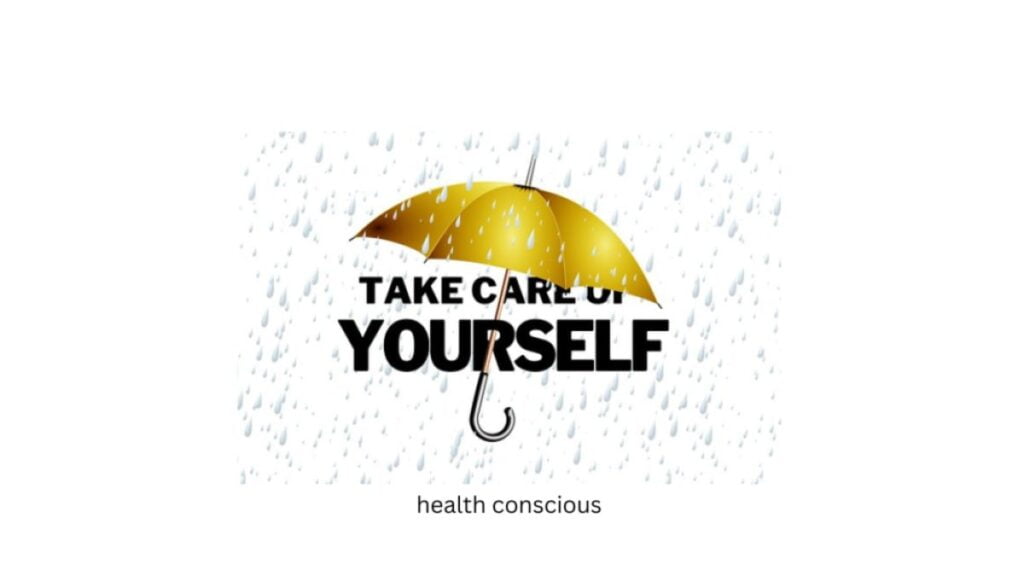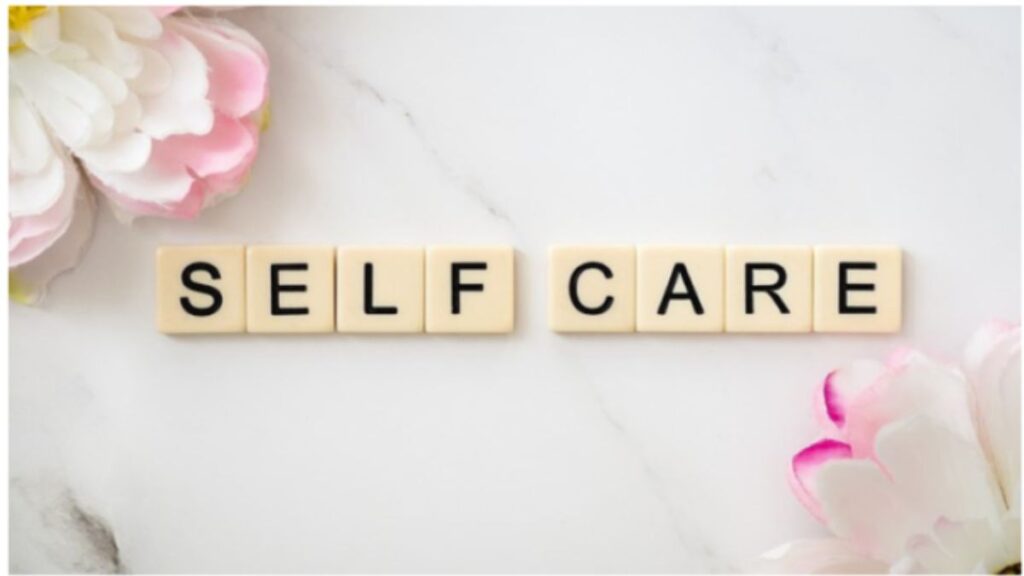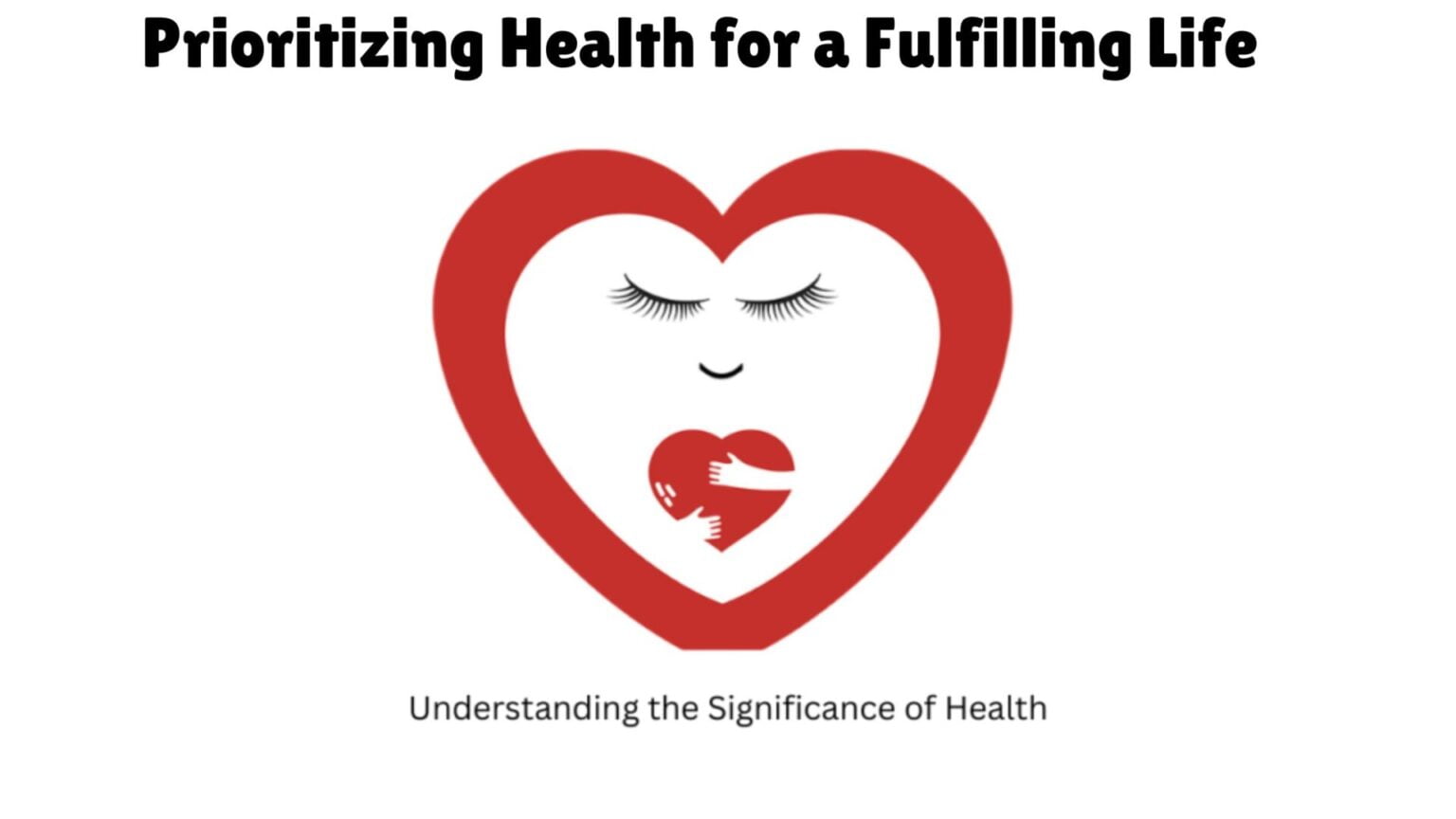INTRODUCTION:-
Prioritizing Health for a Fulfilling Life: Tips for Effective Self-Care

In the hustle and bustle of modern life, it’s all too easy to overlook the most essential aspect that fuels our journey: our health. The concept of health goes beyond mere absence of illness; it encompasses physical vitality, mental clarity, emotional balance, and spiritual well-being. Prioritizing health is not just a trend; it’s a lifelong commitment to nurturing yourself and creating a foundation for a truly fulfilling life. In this article, we delve into the significance of health and provide actionable tips for effective self-care.
Is prioritizing health merely a passing trend, or is it a lifelong dedication to cultivating well-being and establishing the cornerstone for a truly fulfilling life? In the following discourse, we explore the profound importance of health and offer practical insights into achieving effective self-care.
Understanding the Significance of Health
Health is the cornerstone on which the edifice of a fulfilling life is built. Imagine a life where you wake up each day with energy coursing through your veins, a clear mind ready to tackle challenges, and a sense of emotional equilibrium to navigate life’s ups and downs. This vision isn’t far-fetched; it’s the promise of a well-prioritized health regimen.
The Pillars of Effective Self-Care
- Physical Well-being: A healthy body is the vessel through which we experience life. Engaging in regular physical activity, maintaining a balanced diet, and ensuring adequate rest are key components of physical self-care. Incorporating exercise into your routine not only keeps your body fit but also releases endorphins, the “feel-good” hormones that enhance your mood.
- Mental Clarity: A cluttered mind can hinder your ability to focus, make decisions, and enjoy life’s moments. Practicing mindfulness, meditation, and engaging in activities that stimulate your intellect can help achieve mental clarity. Take breaks to disconnect from digital devices and reconnect with your thoughts and feelings.
- Emotional Balance: Acknowledging and managing your emotions is a vital part of self-care. Engage in activities that bring you joy and surround yourself with positive influences. Additionally, seeking support from friends, family, or a mental health professional can provide valuable insights into emotional well-being.
- Spiritual Nourishment: Nurturing your spirit involves connecting with your inner self, values, and purpose. This can be achieved through practices such as meditation, spending time in nature, or engaging in creative endeavors. A sense of spiritual fulfillment can enhance your overall well-being and provide a deeper sense of meaning in life.
Tips for Effective Self-Care
- Create a Routine: Establishing a daily routine that includes time for exercise, healthy meals, relaxation, and quality sleep can provide structure and consistency to your self-care efforts.
- Set Boundaries: Learn to say no to activities or commitments that drain your energy or time excessively. Setting healthy boundaries helps you preserve your resources for what truly matters.
- Prioritize Sleep: Sleep is the body’s natural rejuvenation process. Aim for 7-9 hours of quality sleep each night to ensure your body and mind are refreshed.
- Practice Gratitude: Cultivate an attitude of gratitude by reflecting on positive aspects of your life. This practice can boost your mood and overall outlook.
- Engage in Hobbies: Dedicate time to activities you enjoy. Hobbies provide an outlet for self-expression and relaxation, helping to reduce stress.
- Stay Hydrated: Drinking enough water is crucial for maintaining bodily functions, energy levels, and mental clarity.
- Connect Socially: Foster meaningful connections with friends and family. Social interactions contribute to emotional well-being and provide a support network during challenging times.
“How to be health conscious to live a full life? What things to adopt and what to discard?
Living a full and vibrant life hinges on making health-conscious choices that empower your well-being. To embark on this transformative journey, it’s essential to adopt certain practices while letting go of others that may hinder your path. Here’s a comprehensive guide on what to embrace and what to discard:

What to Adopt:
- Balanced Diet: Prioritize whole, nutrient-rich foods such as fruits, vegetables, lean proteins, whole grains, and healthy fats. A balanced diet fuels your body with essential nutrients, supporting optimal functioning.
- Regular Exercise: Engage in physical activity that you enjoy, whether it’s brisk walking, yoga, jogging, or dancing. Regular exercise not only boosts your physical health but also enhances mood and reduces stress.
- Adequate Hydration: Drinking enough water is vital for maintaining bodily functions, supporting digestion, and keeping your energy levels up.
- Mindful Eating: Pay attention to your body’s hunger and fullness cues. Eating mindfully can prevent overeating and promote better digestion.
- Sufficient Sleep: Aim for 7-9 hours of quality sleep each night. Sleep is crucial for recovery, cognitive function, and overall well-being.
- Stress Management: Practice relaxation techniques like deep breathing, meditation, or mindfulness to manage stress effectively. Chronic stress can negatively impact your health.
- Positive Relationships: Cultivate meaningful connections with friends, family, and supportive individuals. Social interactions contribute to emotional well-being.
- Mindfulness and Gratitude: Practice being present in the moment and expressing gratitude for the positive aspects of your life. This promotes a positive outlook and enhances overall happiness.
What to Discard:
- Excessive Processed Foods: Reduce your consumption of highly processed and sugary foods. These items often lack nutritional value and can contribute to health issues.
- Sedentary Lifestyle: Minimize prolonged periods of sitting. Incorporate movement into your day to avoid the negative effects of a sedentary lifestyle.
- Overindulgence: Avoid excessive consumption of alcohol, sugary beverages, and unhealthy snacks. Moderation is key to maintaining a health-conscious lifestyle.
- Negative Self-Talk: Let go of self-criticism and negative thoughts. Replace them with self-compassion and positive affirmations.
- Unhealthy Habits: Discard habits like smoking and excessive caffeine intake. These can undermine your health and well-being.
- Lack of Boundaries: Say no to activities or commitments that drain your energy and time excessively. Setting healthy boundaries is crucial for self-care.
- Isolation: Avoid isolating yourself. Engaging in social interactions and seeking support from loved ones can bolster your emotional health.
- Stressful Environments: If possible, minimize exposure to toxic environments or relationships that contribute to stress and negativity.
By embracing these health-conscious practices and letting go of habits that don’t serve your well-being, you’re creating a foundation for a life rich in vitality, purpose, and fulfillment. Remember that small, consistent steps lead to transformative change, and your journey towards a healthier life is a profound act of self-care.
In Conclusion
Prioritizing health is not a luxury; it’s a fundamental investment in your own well-being and the quality of your life. By embracing effective self-care practices, you’re taking control of your physical, mental, emotional, and spiritual health. Remember, it’s not about perfection but about progress. Small, consistent steps toward self-care can lead to a life filled with vitality, balance, and the fulfillment you truly deserve.
FAQs: Prioritizing Health for a Fulfilling Life: Tips for Effective Self-Care
Q1: What is self-care, and why is it important?
A1: Self-care involves activities and practices that individuals engage in regularly to reduce stress and maintain well-being. It’s crucial because it helps:
- Improve physical health.
- Boost mental health and emotional resilience.
- Enhance productivity and focus.
- Strengthen relationships and social connections.
Q2: What are some practical tips for effective self-care?
A2: Effective self-care can be achieved through various strategies, including:
- Physical Activity: Engage in regular exercise, such as walking, yoga, or strength training.
- Healthy Eating: Maintain a balanced diet rich in fruits, vegetables, lean proteins, and whole grains.
- Sleep Hygiene: Ensure 7-9 hours of quality sleep each night.
- Mindfulness and Relaxation: Practice meditation, deep breathing, or mindfulness exercises.
- Social Connections: Foster relationships by spending time with friends and family.
- Hobbies and Interests: Engage in activities that bring joy and relaxation.
Q3: How can one incorporate self-care into a busy schedule?
A3: Incorporating self-care into a busy schedule requires intentional planning and commitment:
- Schedule It: Treat self-care activities as important appointments.
- Start Small: Begin with small, manageable changes, like a 5-minute meditation.
- Combine Activities: Integrate self-care into daily routines, such as listening to audiobooks while exercising.
- Set Boundaries: Learn to say no and prioritize personal time.
References
- Mayo Clinic. (2021). Self-care: How to take care of yourself. Retrieved from Mayo Clinic.
- American Psychological Association. (2020). The Road to Resilience. Retrieved from APA.
- National Institute of Mental Health. (2021). Caring for Your Mental Health. Retrieved from NIMH.
- Harvard Health Publishing. (2019). The Importance of Self-care. Retrieved from Harvard Health.
- Centers for Disease Control and Prevention. (2021). Sleep and Health. Retrieved from CDC.
- World Health Organization. (2021). Mental Health and Psychosocial Considerations during the COVID-19 Outbreak. Retrieved from WHO.






